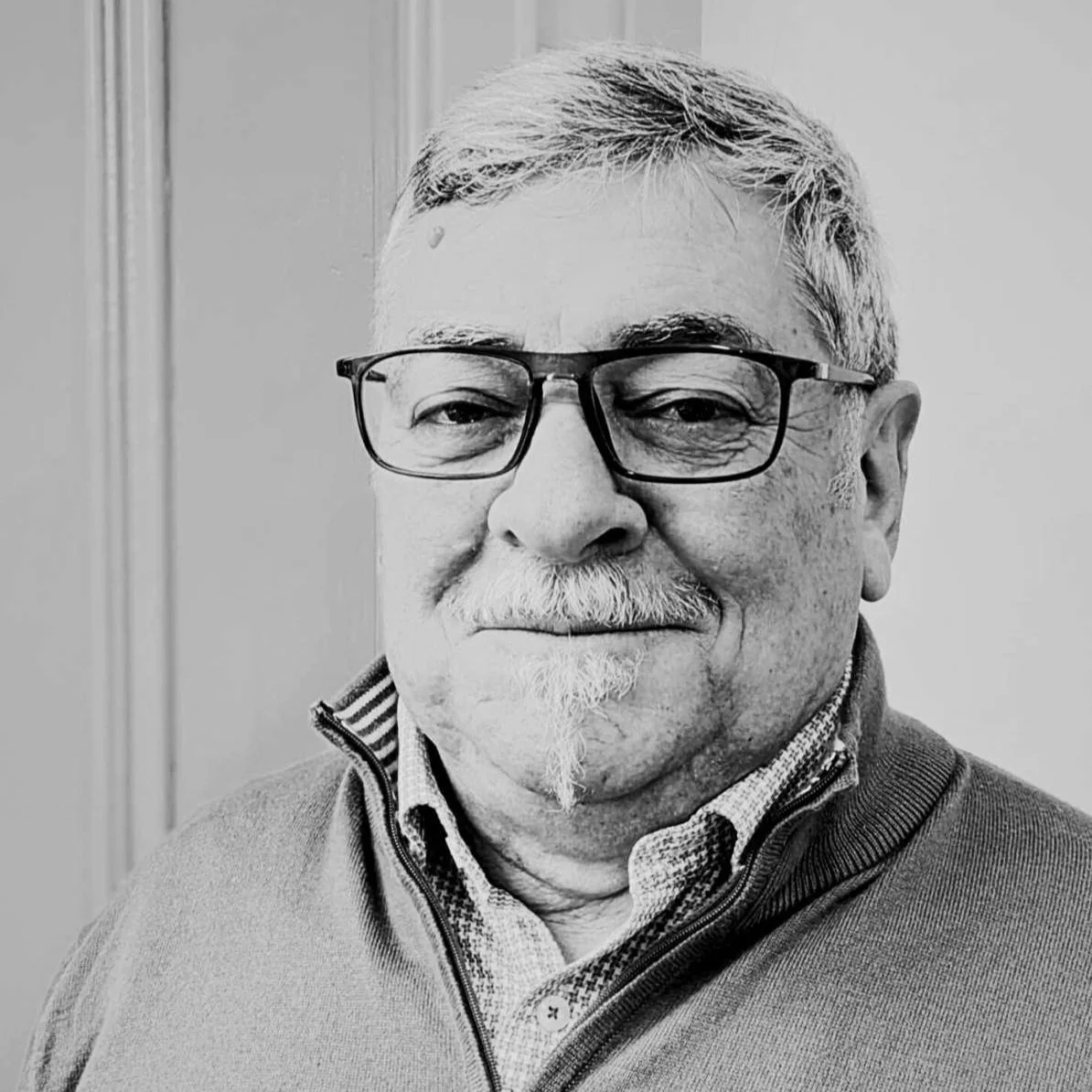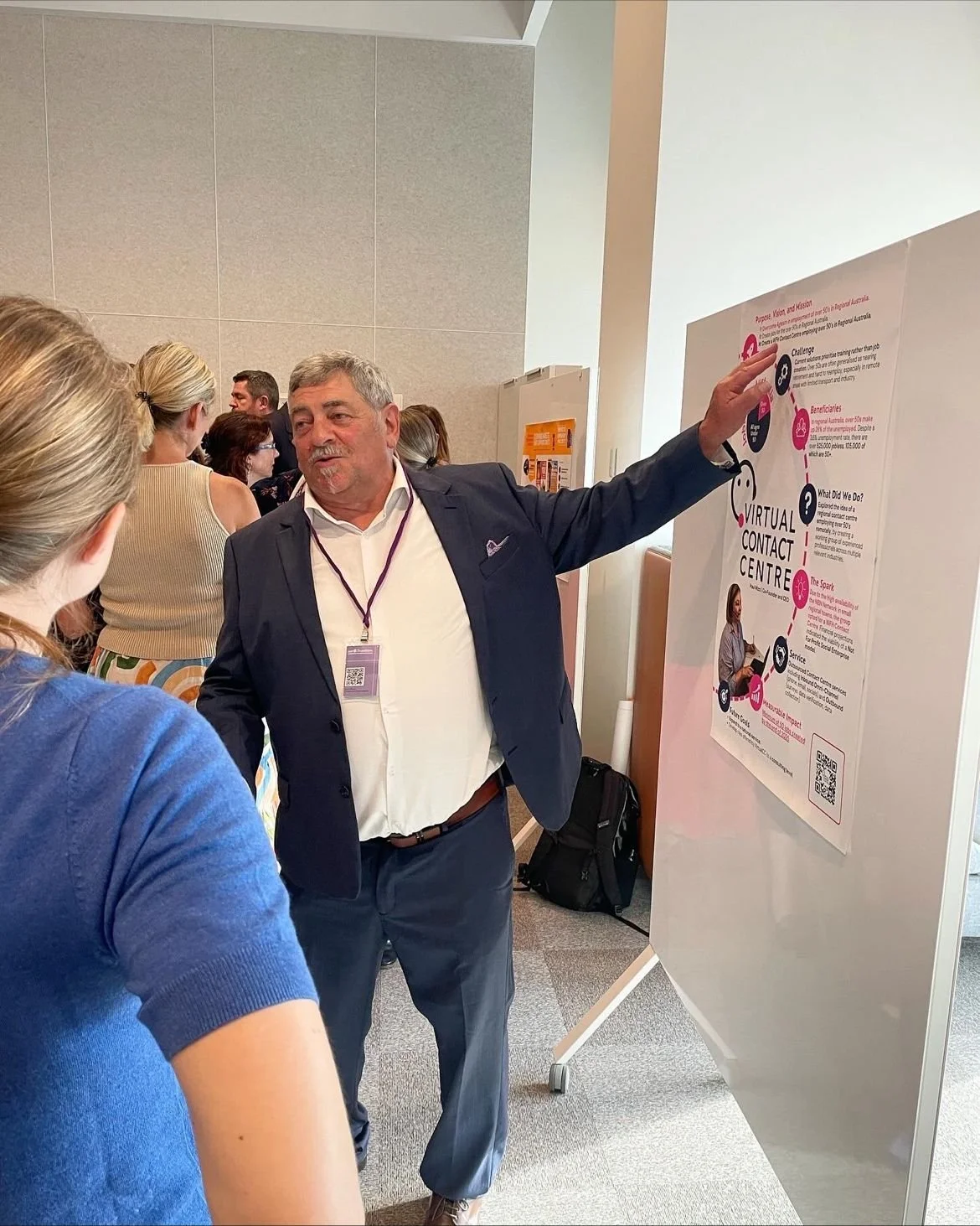Paul Mizzi On Remote Employment Opportunities Helping Older Australians Live More Fulfilled Lives Regionally
Paul Mizzi is a seasoned professional with a robust background in business and community engagement, specialising in ICT and telecommunications across Australia.
'He is the Founder and Director of Virtual Contact Centre Limited (VirtualCC), a not-for-profit social enterprise dedicated to addressing ageism in employment. VirtualCC provides work-from-home opportunities for over-50s in regional Australia, enhancing their IT skills while offering sustainable employment.
Paul's extensive career includes roles in community development, corporate sales, and IT management, underpinned by his Bachelor of Mathematics and Computer Science from Swinburne University. His innovative approach to problem-solving and commitment to social impact have been pivotal in his work.
At VirtualCC, Paul leverages his experience to create jobs that foster self-respect and improve mental health outcomes for disadvantaged individuals
Paul discusses the unique challenges preventing regional and elderly Australians from finding sustainable employment, and why remote work in addition to providing financial stability improves the mental health of employees through offering freedom and flexibility.
Highlights from the interview (listen to the podcast for full details)
[Indio Myles] - To start off, can you please share a bit about your background and what led to your career in the not-for-profit and social enterprise space?
[Paul Mizzi] - For many social enterprise founder, we all share at the beginning of our journey having lived experiences. For me, it was with the Global Financial Crisis in 2008, and the years that followed the GFC were a traumatic time for my family and I as we struggled to keep a house and find work.
In 2008, Telstra announced they were going to retrench 8,000 staff. Then, a keynote speaker at a networking breakfast stated if you are a woman aged over 45 living in regional Victoria and you lose your job now, you're unlikely to ever work again. Those two experiences ignited my passion to do something; I wanted to change the narrative and do something about ageism and employment for older Australians living in regional communities.
I went and created a working party to research solutions in 2019, and by February of 2020 we were ready to register as a not-for-profit. Of course, it nearly didn't happen because of COVID, but three of us decided we would still need to do something. It was worthwhile getting started. We finally registered on the 27th of April 2020, and then we became a registered charity in January 2021. We've been working towards fulfilling our goal ever since then.
As the founder of the Virtual Contact Centre Limited, can you share more about this organisation and how it’s supporting disadvantaged Australians?
Our work can be traced again to my own lived experience. For me, I was out of work in my mid-fifties, and during the GFC I was applying for 200 jobs without a single response. It was disheartening to say the least. The type of support I was offered was training and counselling, but what I really wanted was a job, and there was nothing available.
People would give me lots of advice, so in creating VirtualCC, what I realised I wanted to do is create jobs for people, one that would use their skills, knowledge and lived experiences. What we're doing is creating jobs and employing people as work from home contact centre agents, particularly in regional Australia. When you live potentially hours away from a large regional town, instead of having to travel there to earn a living and re-establish yourself, we’re here to help.
We've created jobs in local communities through an outsourced service selling to business and government departments. In creating these jobs, we're able to upskill unemployed regional Australians and show that even though they're old, they are not obsolete.
What obstacles exist for regional Australians to find work and what are the positive impacts created by helping people in these communities to develop financial stability and independence?
The first part of it is the distance. For anywhere in regional Australia, it's about distance and visibility. If you can't see them, you're not going to consider their needs. What's interesting about the issue of distance to me is we've spent tens of billions of dollars establishing the National Broadband Network in Australia, yet, we have employers who insist the only way to work is from a central office.
Without the visibility of being in an office, there's an assumption that employees are not across their daily priorities. The establishment of NBN, particularly NBN Wireless Network (which was quickly rolled out across smaller towns in regional Australia) allows us to use technology to develop a work from home model.
So, when you live in a small regional town with a population of a few hundred people, a town that is a few hours’ drive away from a capital city or a large regional centre, you can work. One of the lessons we have learned was from COVID was that you can work from home, and it makes sense. It turns out to make even more sense for those who are over 50 and/or on the Disability Employment Scheme, because they can't easily travel to a regional centre. Often, they are already set up to work from home.
What positive impacts are created by helping smaller regional communities develop financial stability and independence?
When you're working from home in a small regional Australian town, it allows more of your salary to be spent locally. The economic flow then works for the community, but it's also more effective because working from home is cheaper for employees. We can provide them better benefits from even a simple salary. Working from home also allows you to become involved in your local community.
Some people see working from home as meaning they will become separated from their community, but it gives you more time. Working from home, you have time at the beginning and end of your day to spend in your community, because you’re not travelling miles to just get to your job.
This allows you to be involved, you can be at a local community meeting by 5:30 PM rather than just getting home at 7 PM every day.
The other benefit is research shows there's a high correlation between the decline in volunteerism and the rise of mental health issues, so if you can volunteer in your local community, you may experience mental health benefits. It also increases life satisfaction and enhances your overall mental wellbeing, so our model supports and encourages those who live in regional Australia to become involved in volunteer opportunities in their local communities.
As an AMP Foundation Tomorrow Maker, you’re currently getting support to develop and grow the Virtual Contact Centre. What have been your reflections and learnings from the support to date?
The AMP Foundation Tomorrow Makers program has completely changed the way I understood that I was trying to achieve when I created VirtualCC. We were lucky to have applied when we did, because Nicola and Lucy at the AMP Foundation have changed how they deliver support through the Tomorrow Makers program.
Now support is offered to early-stage social enterprises, and VirtualCC was amongst the first cohort to benefit from this new SPARK program that was delivered in partnership with Impact Boom in 2023. The SPARK program set the scene and helped us work through a proof of concept which allowed us to become certified as a social enterprise by Social Traders. This again helped us into this year's IGNITE program, which was designed to help us operationalise during 2024.
One of my learnings over the past four years is that small and unknown not-for-profits rarely get a hand up nor attract philanthropic funding. The AMP Foundation is one of the few who will help you organise and understand social enterprise, your purpose, and how you can deliver your impact. Then they help fund you.
What is your advice for people who want to help others through starting their own social enterprise?
The first piece of advice I'd give is understand the difference between a social enterprise and a not-for-profit. Having a commercial background helps you understand the business model of a social enterprise, but it won't help you understand that you need to start with a theory of change so you can validate whether you will deliver on the social impact that sparked your passion in the first place.
My second piece of advice is that before you create any organisation, look within your local social enterprise network, such as SENVIC in Victoria. Look at the programs offered by the Centre for Social Impact at Swinburne or check out the Social Change Central online platform. Do your research before you establish your organisation.
What inspiring projects or initiatives have you come across creating a positive change?
It's hard not to mention my fellow AMP Foundation SPARK Tomorrow Makers, my 2023 cohort is incredible. All of them were inspiring, so I just wanted to share my platform with them because I'm in awe of all of them. Four of us were honoured to move to the next stage of the AMP Foundation Tomorrow Maker’s program, IGNITE, in 2024. Check out disinfluencer, who's one of my cohorts for this year and last year. Also investigate Prepare Produce Provide and the Remote OpShop Project on the AMP Foundation website. For IGNITE we are now joined by Reboot Australia, TeaTime and Deadly Sheds, which are all incredible social enterprises.
To finish off, what books or resources would you recommend to our audience?
There have been so many great resources coming to us over the last few years particularly, but right now, I'm just enjoying the weekly digest from Social Change Central. They send out an email each week, and they have lots of great leads and advice. The Business For Good Network, that’s the platform the AMP Foundation uses now, brings organisations like Impact Boom and Social Change Central together. It's a great network which features a lot of opportunities and webinars, so go and have a read of that platform also.







